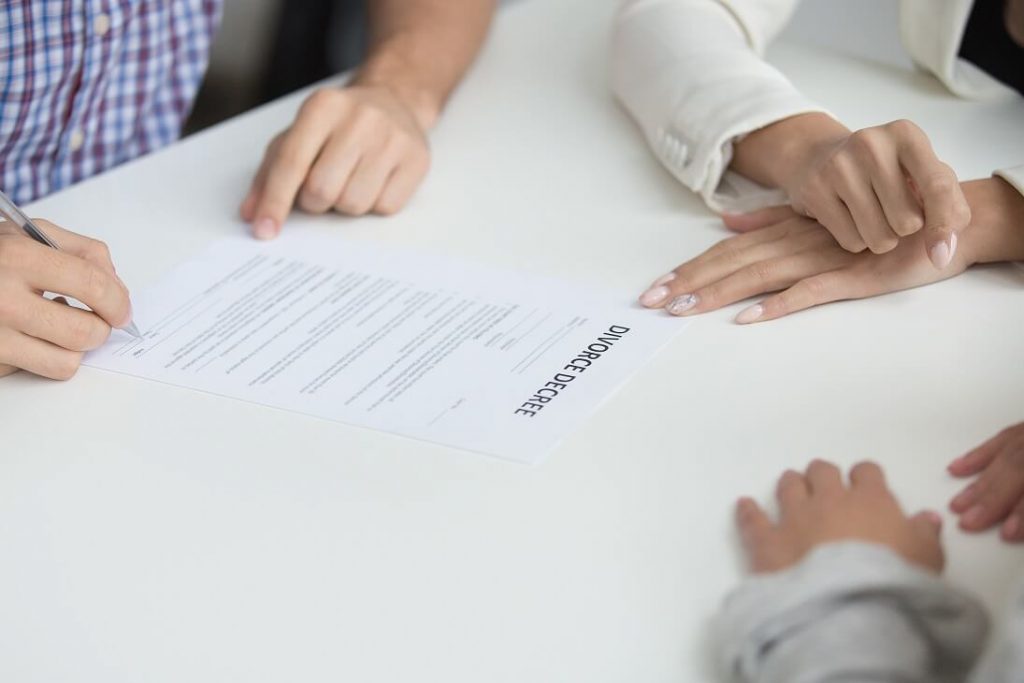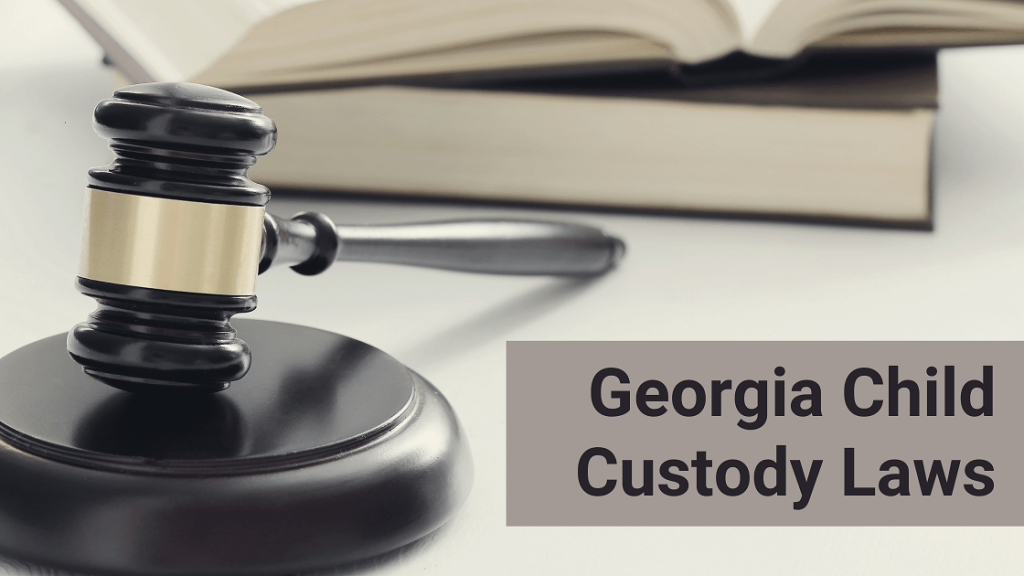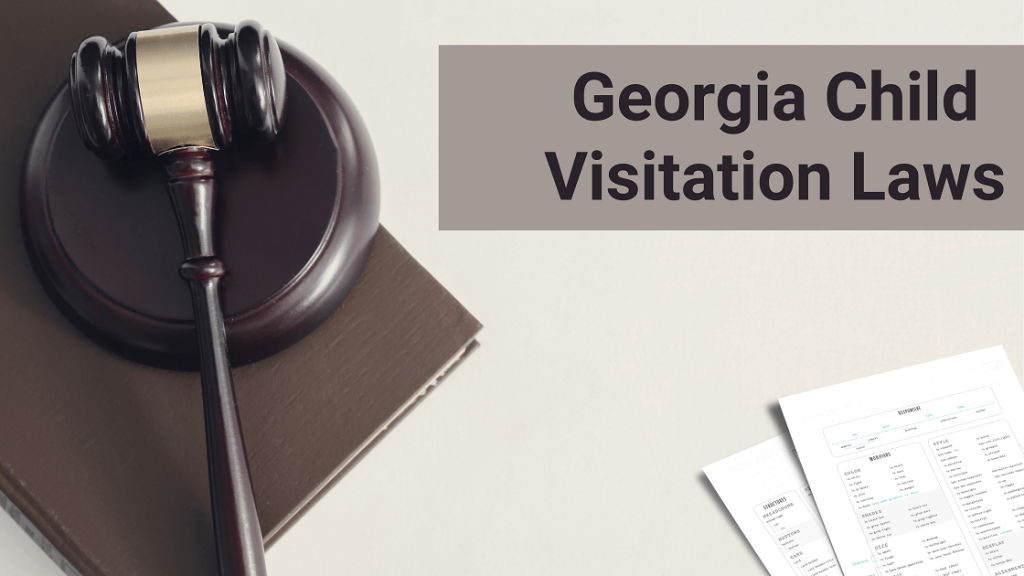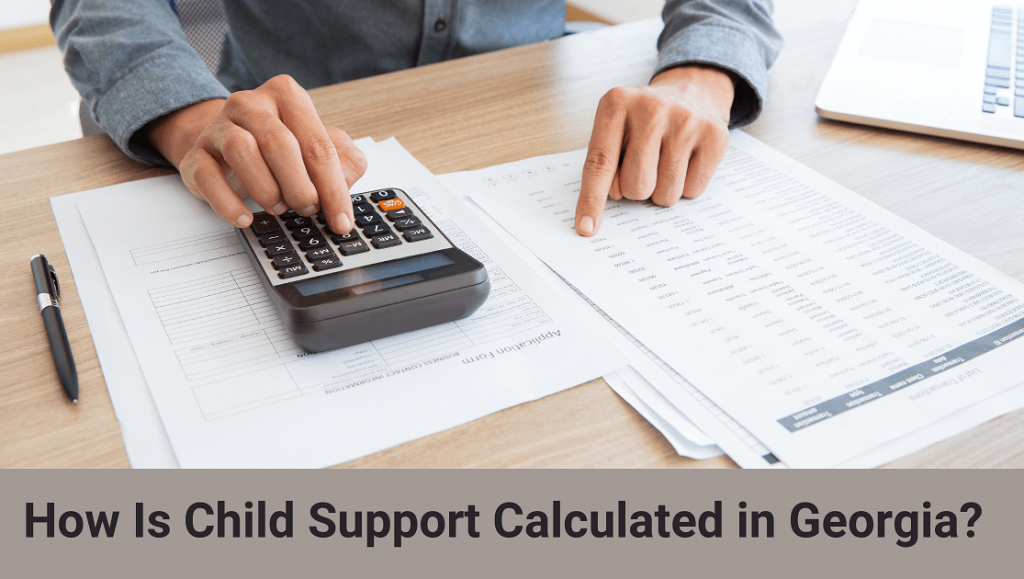Table of Contents
ToggleWhen filing for a divorce, couples who have children have to agree on child-related matters or take their case to court for a judge to make a final decision. Courts in Georgia encourage parents to reach an agreement that would be in the best interest of their children and make decisions based on them whether or not the divorce is amicable.
What Is the Georgia Child Custody Law?
Family law in Georgia recognizes two types of custody – physical and legal. Child custody in Georgia can also be joint (both parents have it) or sole (only one parent has it). A spouse who possesses a sole physical custody is called a custodial parent, while the second one is called non-custodial.
The courts of the state are usually inclined to grant joint legal and sole physical custody to spouses unless it is not in kids’ best interests. The legal system also facilitates child’s relationships with both parents if there are no proven cases of abuse and neglect, domestic violence, etc.
How Is Custody Determined in Georgia?
In general, parents have equal rights to custody over their kids. Based on Georgia custody law:
- Court gives priority to children’s best interests when making a decision.
- Neither of spouses will have a privilege over the other based on gender when getting custody of a child.
- The court may also grant the wishes of the kid of 14+ years to live with one of the parents if such wishes do not contradict their best interests.
- If divorcees are in agreement on matters related to their children, the court is unlikely to reject their parenting plan, unless it was not put together with the children’s interests in mind.
- If spouses are involved in a contested divorce case, the judge of Georgia family court will consider all the evidence and testimonials presented by both sides and their witnesses when making a decision on custody.
Child Custody Best Interest Factors
Here are 12 Georgia custody factors that are commonly considered by the courts:
- The relationship between the child and each of parents;
- The bond between the kid and his or her siblings or step-siblings;
- An ability of each parent to provide harmonious upbringing and proper education;
- An awareness of each spouse about kid’s needs;
- An ability of each spouse to provide the child with clothing, food, medical care, as well as other basic needs irrespective of the child support payment that will be paid by non-custodial parent;
- The safety of home environment of each spouse;
- The stability and bond of the family;
- The amount of time the child spent in a healthy and stable home environment;
- Each spouse’s involvement in kid’s activities;
- Mental and physical health of each parent;
- Parent’s employment schedule;
- Possible criminal history of both spouses.
Types of Child Custody in Georgia
- Legal custody. Allows spouses to make decisions about important aspects of their kid’s life, such as education, extracurricular activities, health, religion, etc. Joint legal custody in Georgia is the most common option for families as judges are inclined to encourage kid’s relationship with both parents. However, one of the parents will get a final decision-making authority in case there are certain disputes and it is impossible to reach an agreement.
- Physical custody. Determines who the kids will live with. The child will reside with a primary custodial parent if he or she has sole custody or with both if they have a shared one. In case the latter is true, the kid will spend a roughly equal amount of time with each of their parents. However, one of them will still receive child support. The decision on who the child will live with most of the time will be made taking into account who was a primary caregiver during the marriage. The proximity of the place of living to school and the community that child got used to will also be considered in order to help maintain certain stability in kid’s life.
What is Visitation?
Visitation is a court-ordered time that a non-custodial parent spends with their child. There is usually a specific visitation schedule that outlines conditions under which that parent meets with a kid and the time they spend together. Courts in GA rarely deny visitation rights unless there is a serious reason, such as physical or emotional abuse, neglect, desertion, or substance abuse.

How Is Child Custody Handled in an Uncontested Divorce?
In uncontested divorce, spouses file the paperwork only after they resolve all their divorce-related disputes, specifically those concerning their kids. To show the court that they are in agreement, they have to develop a Georgia parenting plan and present it to the judge.
A parenting plan includes both custody aspects and visitation schedule unless the spouses think about getting joint custody. If spouses cannot agree on some points of the plan, they may hire a mediator who will help them reach a consensus.
Filing for custody in Georgia while divorcing, spouses will have to attend a seminar that will teach them how to help their children cope with the changing family dynamics. Divorcees will have to file a certificate proving they have passed the course before the hearing.
Create a free account to check your eligibility for divorce. Preparing legal forms is never easy, but we can help you on every step of the process.
Changing a Custody Order
There are some situations or change in family circumstances when the custody order has to be modified. However, the reasons for modification should be quite serious and changes should be in kid’s best interests. For instance, those might be:
- Change in financial situation of one of the parents that would allow them to spend more time with kids and take better care of them or vice versa.
- Relocation or refusal of one of the exes to follow a court order.
- Change in the needs of kids, whether because of their age or acquired physical/mental disability.
Can Visitation Time Be Modified?
Yes, a non-custodial mother or father also has a right to modify visitation. However, he or she can do it without stating any changes in circumstances once every 2 years after visitation is ordered by the court.



